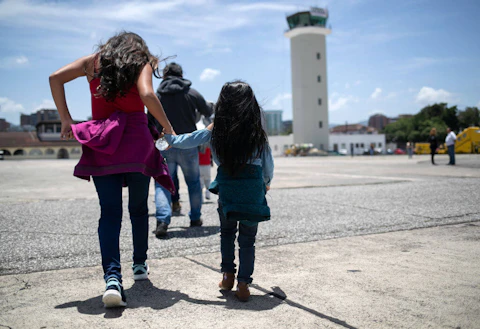“I feel lucky that I am able to vote, not just as an immigrant, but also as a transgender person, because now I have documents that affirm my gender,” she says.
Alexa Elizabeth Rodriguez will be voting for the first time in the 2020 presidential election, and it’s not something she takes lightly. She’s been waiting for this moment since she first arrived in the US more than ten years ago seeking asylum. The transgender rights activist left her native El Salvador hoping she could be her true self in the US. Today, as a Baltimore resident, Rodriguez is doing all she can to participate in the political conversation.
Becoming a US citizen was a rigorous process for Rodriguez. Two years after applying for asylum, she was able to seek citizenship. That step took another five years. Her citizenship application was finally approved in 2019. The first thing she did was register to vote.
RELATED: 5 Reasons the LGBTQ Community Loves Kamala Harris
“I felt many feelings,” Rodriguez said in an interview with The Americano about the moment she first registered to vote. “[I felt happy] to be able to register with my legal name and my gender. I was like, ‘wow, this is amazing’ because we don’t have that opportunity in El Salvador.”
Rodriguez says it’s nearly impossible for transgender people to vote in El Salvador because their ID information, which includes their gender at birth, needs to match the person that is in front of the voting officials, which causes transgender people to be rejected at the polls. For Rodriguez, as a naturalized citizen with a new ID card, all of the information coincides with who she is. “It’s something affirming,” Rodriguez says.

While Rodriguez was looking forward to voting in person, COVID-19 has made her consider the mail-in option.
“[It’s] something I’m still researching,” Rodriguez says. “I just got something in the mail that shows all of the options, but because of COVID-19, I think I may choose to vote by mail, but I am still thinking about it. I still want to have that first-time experience to go and vote right there.”
With her work as the director of the nonprofit organization Trans-Latinx DMV, Rodriguez said she is becoming more educated about politics and how her vote impacts issues relevant to her, like transgender rights.

She wants people to educate themselves better about the voting process and the issues at stake, as the amount of information can be overwhelming. Her suggestion is to find people in your local community who can speak about the issues and policies that will be on the ballot.
WATCH: Ricardo Negrón Commits His Life to Empowering Latino Voters and LGBTQ Communities
For her, that person is her brother—someone who, even though is not allowed to vote in the US, is extremely educated about politics. “He explains it to me in words that I can understand,” Rodriguez says, noting the importance of getting the information in a language you’re fluent in.
“It’s not just about the people at the top, like the president, but about legislators and local community leaders,” Rodriguez says. “It’s our job to choose [all] those leaders.”





